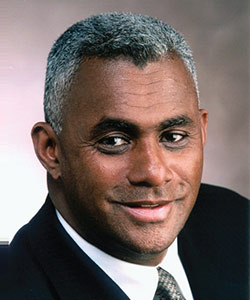by Trevor Wilson
Author and Global Human Equity Strategist
TWI Inc.
Over a decade ago, a leading law firm looked to merge with another established firm. At the celebration event for the merger, a senior partner of one firm sexually harassed nine female partners from the other firm. The next day these nine women jointly took their complaint to the CEO and gave him an ultimatum – “It’s either us or him and if it is us, we will not be going quietly.”
Within a week the partner’s letter of resignation appeared on the front page of one of the largest newspapers in the country. The firm had accepted his resignation, acknowledging that his behaviour was inappropriate and violated the firm’s policy against sexual harassment.
“Equitable leaders believe that human equity, maximizing on human capital, is the most sustainable route to better business outcomes.”
Organizations that tolerate this type of behaviour fall into a common trap. The trap occurs when individuals reach positions of influence where few employees have the power to tell these leaders about their unacceptable behaviour without fear of reprisal or retribution. This leads to a continuation and possible escalation of the unacceptable behaviour, causing employees to either physically leave the organization or, more dangerously, mentally quit their jobs but stay for monetary or other reasons. This is a phenomena frequently referred to by industrial psychologists as “psychic absenteeism”—the antithesis of the holy grail of employee engagement.
An answer to this dreaded trap is the creation of equitable leaders, who exhibit professional behaviour. The equitable leader seeks to create equitable and inclusive work environments where people feel valued, respected, and included. Equitable leaders seek to develop a work environment and atmosphere of mutual trust, support and respect and a place where people feel they have a place at the organizational table that really matters.
The equitable leader ensures that employees are valued because of, not in spite of, their differences, so that each person is recognized and developed, and their talents are routinely tapped in to.
Equitable leaders believe that human equity, maximizing on human capital, is the most sustainable route to better business outcomes. They understand that human equity means not only putting people first; it leads to increased profitability, improved efficiencies, reduced costs and reduced unwanted turnover.
The equitable leader exhibits a different set of core leadership competencies. These eight competencies, known as the equitable leader competencies, were identified a decade ago by organizational psychologists at the Western School of Productivity. To aid the development of equitable leaders, TWI has created the equitable leader assessment (ELA) based on those eight competencies. In the next article, I will discuss the equitable leader assessment as well as an assessment that covers behaviours of the lowest ten percent: the so called dirty dozen behaviours.

Trevor Wilson
Global Human Equity™ Strategist, Toronto, ON. He is a dynamic speaker, a visionary thought leader and a global diversity and Human Equity™ strategist. Wilson is founder and president of TWI Inc






